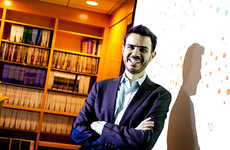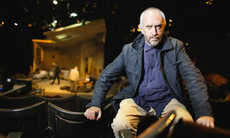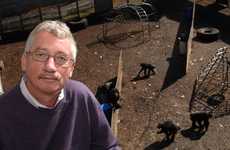
David Rand Keynotes
As an Assistant Professor of Psychology at Yale University, David Rand's keynotes focus on his area...

Need Inspiration?
Get inspired by 4,000+ keynote speaker videos & our founder, a top keynote speaker on innovation.
David Rand's Natural Cooperation Keynote Answers If Humans Genuinely Want to Help
Elise Ying-Hei Ho — November 21, 2012 — Keynote Trends
References: people.fas.harvard.edu & player.vimeo
Behavioral Scientist David Rand of Yale University explores the motivations behind human cooperation and whether it can be trained in his natural cooperation keynote.
At a macro level, Rand explains how the idea of reciprocation instilled by society has led to the seeming willingness to cooperate with one another. By helping someone else, whether there is a third party observer or not, the idea is that if you scratch their back, they'll scratch your back in the future. On a micro scale, the scientist delves into the world of whether humans are selfish by nature and if so, can those impulses be overcome rational self-control.
In Rand's study, research shows that those who react more quickly and intuitively, are more likely to cooperate and are less selfish while those who take more time to reflect are often the more selfish individuals, weighing the odds of their supposed generosity. Rand's natural cooperation keynote, unfortunately, points out that this is a dominating thought process in society today. People are, consciously or subconsciously, considering all the possible outcomes of their actions to see if any social capital can be gained before assisting one another.
At a macro level, Rand explains how the idea of reciprocation instilled by society has led to the seeming willingness to cooperate with one another. By helping someone else, whether there is a third party observer or not, the idea is that if you scratch their back, they'll scratch your back in the future. On a micro scale, the scientist delves into the world of whether humans are selfish by nature and if so, can those impulses be overcome rational self-control.
In Rand's study, research shows that those who react more quickly and intuitively, are more likely to cooperate and are less selfish while those who take more time to reflect are often the more selfish individuals, weighing the odds of their supposed generosity. Rand's natural cooperation keynote, unfortunately, points out that this is a dominating thought process in society today. People are, consciously or subconsciously, considering all the possible outcomes of their actions to see if any social capital can be gained before assisting one another.
1
Score
Popularity
Activity
Freshness
















